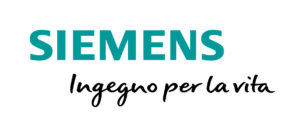Selling and exporting to Africa: which are the best payment terms? Let us explore the Cash Against Document (CAD)
Written by Dario Mondello
International Shipping & Customs

The incoterms of group “C” establish that the payment of the transport should be the seller’s liability but the risk connected to it should be the buyer’s own expense. Often, the cases in which the relationship (buyer-seller) is not consolidated, they establish payment terms in compliance with the needs of both parts.
The C.A.D., acronym of Cash Against Document, turns out to be one the most common payment terms to be used for shipments towards the African continent, especially in the Maghreb area, where it is very much utilized and often preferred to the structured accompanied letter of credit.
In fact, with this payment term, the shipment of the goods is followed by the delivery of documentation, necessary for importing, to the bank of the seller, so that bank via its competent correspondent in the buyer’s area, can convey the amount due for the delivery of the goods to the importer. It will be the seller and buyer’s responsibility to instruct and define the form in which the bank will send the documents to the final client; once the income has come through, the transferee will allocate the due amount the recipient bank.

It’s important to underline that, via C.A.D, the banks are limited in operating to finalize the directives, which is honouring the instructions given by the seller for the delivery of the documents to the buyer, without taking any responsibility.
Here is where the critical issues emerge with the C.A.D payment:
-The importer is forced to honour the payment even before visualizing the goods and evaluate its integrity
-The seller is at risk for the non-collection of the documents by the client for any reason, therefore putting at risk the sale’s finalization
-The banks are spectators and make sure only in giving back the documentation as established by the agreement between the two parts. However, they are not responsible neither for the document’s integrity neither for their local correspondent’s job to who they send their orders as their representatives.
In case of missed withdrawal of the documents by the client, two solutions remain for the seller:
-If the client doesn’t claim for the goods the seller can put them up for auction at the port where the goods are stocked
-The seller can return the goods with all its costs attached (demurrage, delivery costs, return fees, and renationalizing fees)
There are also other critical issues given by the combination of the payment terms and the timing of shipping.
Whoever knows the North African market, can tell you that:
-The transit times from port to port can vary from 2 to 7 days, depending on the starting place, the carrier and the delivery service requested; in any case these schedules are not enough to guarantee the promptness in delivering the documents
-The original loading policy is also needed for the C.A.D, other than the usual documents for shipments extra EU (origin certificates, Eur1, etc.), with all the risks in connected to sending the original documents – especially the loss of them
-The original documents requested are influenced by the scheduled timing of the sender for creating them, the shipper for delivering them and last but not least by the banks timing.
How to choose the payment terms?
An ancient question that finds its answer in the careful evaluation of the explorer/seller: For this reason, the ideal move would be to choose a shipper that can be a Partner other than a supplier, competent and trustworthy.
Lastly, we would like to give some quick suggestions:
-The C.A.D is preferable to the C.O.D (Cash On Delivery) if talking about transport via road or renders FOB or EXW, where the check of the policy is in the hands of the client or it’s carrier
-The renders prepaid by group C (CIF, CPT, CIP, CFR) guarantee more protection to the exporter because, via his/ her trusted shipper, he can have total control of the shipment but not on the risk of non-withdrawal of the documents; even better would be to send the policy (BL) to the bank to be sure of the type of import due to the final client where the goods are to be delivered
-It is possible to proceed differently with a documented credit (letter of credit) where the bank is not just responsible for the delivery of the documents as established by the C.A.D, but has a different role as it guarantees the actual credit.
The higher guarantee implies higher costs related to the letter of credit and to the management of the documented credit. This means they have to weigh when giving a commercial offer and in the definition of Incoterms in selling.














